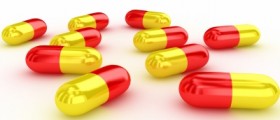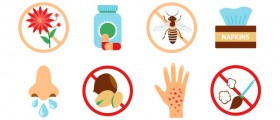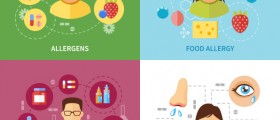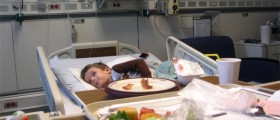
Some people tolerate prescribed drugs well and eventually get better. The symptoms and signs of the condition they are suffering from are completely eliminated or brought under control. However, not all of us are that lucky. Namely, some people are allergic to certain drugs, and if they take the drug they have developed an allergic reaction to, their body will react instantly with a palette of different symptoms and sings. In the majority of cases drug allergy is in a form of skin rash and hives although it may sometimes even progress into a life-threatening anaphylaxis.
So even though all drugs are capable of causing different adverse effects, it is estimated that 5-10% of these adverse effects are actually allergic reactions.
Allergic Reactions to Medications
Allergic reactions to medications develop as a result of a chain reaction due to an abnormal reaction of the sufferer's immune system. The immune system normally acts promptly against all the foreign objects and infective agents that may cause infection, inflammation or any other kind of damage to the body. However, under certain circumstances, the immune system may make the body become extremely susceptible to certain substances. These are known as allergens and each time a person is exposed to a specific allergen, the immune system acts intensively and uncontrollably causing a variety of imbalances.
It is essential to memorize that sensitization occurs the first time the body is exposed to an allergen. Then the body synthesizes immunoglobulin E (IgE). The second time the person gets exposed to the same allergen, these antibodies release chemicals responsible for inflammation and allergic reaction begins.
So the first time the drug is introduced to the body it causes sensitization and the allergic reaction occurs the second, third and any subsequent time the person gets in contact with the drug.
As it has already been mentioned an allergic reaction differs between people and drugs that have caused the allergy and may be in a form of problems regarding different organ systems such as the gastrointestinal system, lungs, nose, throat, sinuses, ears or develops in the most severe form as anaphylaxis.
Drug Allergy Reaction Treatment
In case drug allergy is mild and in a form of localized skin reaction, a person may take cool showers and apply cool compresses. The skin irritation is also reduced with light clothing. Itching is brought under control with over-the-counter antihistamines.
More severe allergic reactions, however, require prompt hospitalization and emergency medical treatment. This particularly refers to anaphylactic shock which is life-threatening.
If one has no problems swallowing he/she should take one or two tablets of Diphenhydramine. Difficulty breathing such as wheezing requires inhalatory bronchodilators such as Albuterol or epinephrine.
People who feel lightheaded and as if they are going to faint should immediately lie down and this way help the blood reach the brain more efficiently.
People who have already been confirmed with drug allergy and been given an epinephrine kit may inject the drug as they have been instructed.
Bystanders are obliged to perform CPR, if necessary until the ambulance arrives.
And finally, inform the medical professionals about all the actions you have taken, the drugs the person who have had an allergic reaction has taken and additional information about the allergy itself.

















Your thoughts on this
Loading...